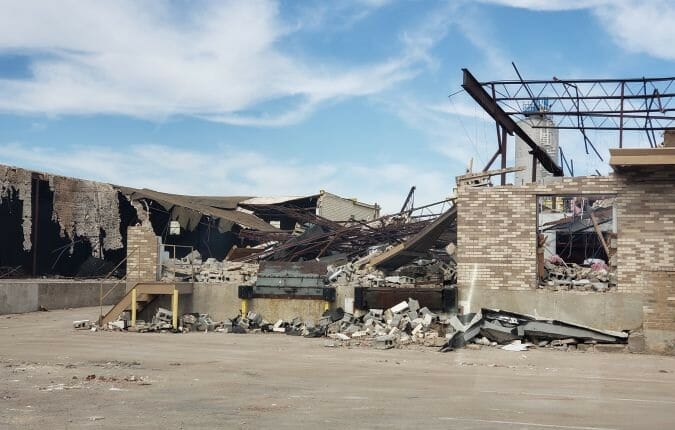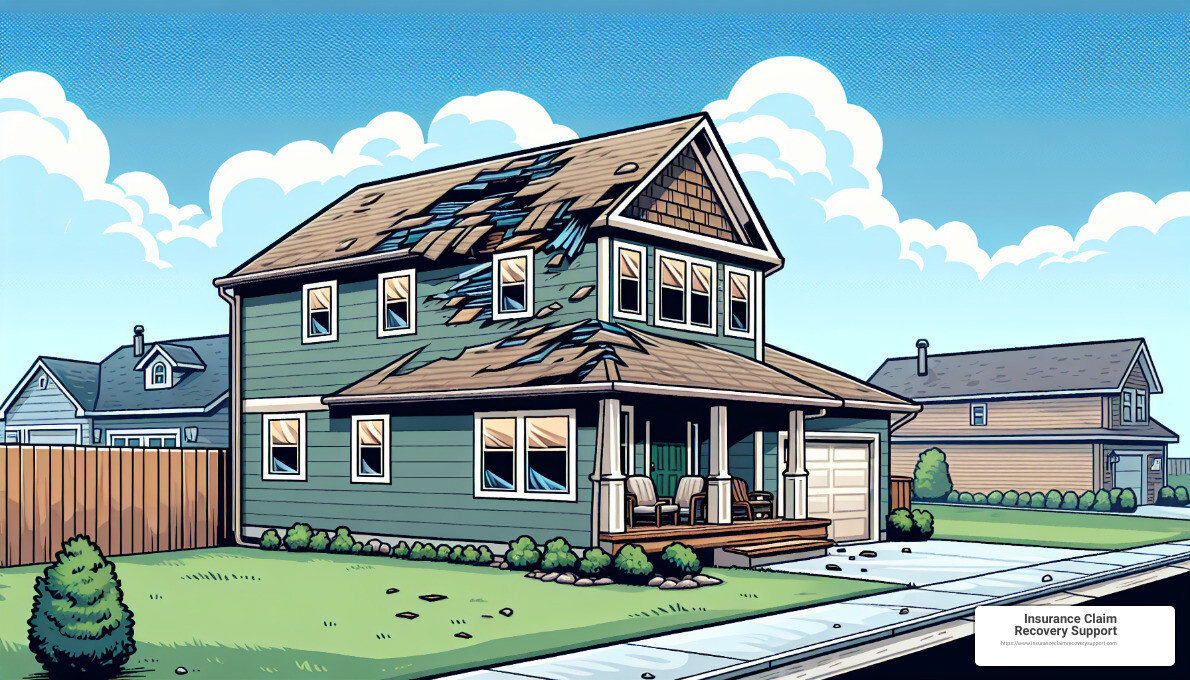Avoiding Unnecessary Litigation With a Public Adjuster
Commercial contractors and their policyholder clients carry a lot of risk in managing the time and expenses of dealing with insurance claims and unnecessary litigation. Overhead and profit, general conditions, policy language, interpretation of policy, code upgrades, negotiations, statutes, estimates, engineer reports, adjusters, attorneys, and appraisers are just a few of the factors to consider when settling an insurance claim. What is the best way to settle a large-loss property damage insurance claim?
Pro-Policyholder Negotiating
Savvy contractors turn to a trustworthy public adjuster who legally negotiates and interprets policies on behalf of a policyholder to settle property damage insurance claims fairly and promptly.
Public adjusters are licensed and bonded in nearly every state. Their process includes reviewing the insurance policy for benefits and exclusions, inspecting buildings for damages, negotiating with the insurance company for maximum settlement in minimum time, helping to avoid unnecessary litigation, and meeting with the insurer’s adjusters or representatives on-site. A good first step is a line-item estimate to support the damage model and a request for an advance on a covered loss so the policyholder can get reimbursed for incurred mitigation expenses and start immediate repairs. Negotiating the full and final claim for the remaining policy benefits owed on a large loss often requires the expertise and authority of a public adjuster to get a claim settled fairly and promptly. The best public adjusters and contractors work together as a team.
Deadlines and Timing
The first deadline to be aware of is when a claim can be filed. Some policies allow filings to happen only within a year from the date of the loss.
Another important deadline deals with business interruption claims. Typical business interruption policies only provide loss of income benefits for a year from the date of loss. If a property damage claim isn’t settled within the same time frame as a business interruption claim, the policyholder could run out of time on his/her business interruption claim before the property is completely fixed and back in business.
How Can Public Adjusters Help Insurance Claims?
It is important to bring a reputable public adjuster into the process immediately when dealing with a large commercial loss. Though a public adjuster is able to come on board at any time or can even reopen closed claims, the time savings and ultimately getting a fair settlement amount are invaluable to both policyholders and contractors.
The whole process can be far more balanced when a good public adjuster is retained immediately. Public adjusters can hold insurers accountable. Insurance companies are required by law to give equal consideration to anything presented by a public adjuster that supports the insured’s claim in meeting the burden of proof. If policyholders wait to hire a public adjuster until after the insurance company partially paid some, but not all, of the money a claimant believes, is owed, a supplemental claim can be opened by a public adjuster.
Policyholders carry the burden of proving their claim to an insurance company. Without considerable training and experience, navigating the process is a considerable challenge. Waiting for the insurer to make a coverage determination before engaging a knowledgeable public adjuster can cost a lot of time and money. All too often, after a property suffers damage, the policyholder files a claim and then waits. Waiting and hoping that the insurance company will do the right thing can be very expensive.
Quite commonly, an insurance company sends out its representatives to document the company’s interests, not those of the policyholder. When no one is representing the policyholder’s best interest with any legal authority and the insurer knows it, settlement results tend to be disappointing.
Overturning coverage determinations takes some time. Insurance companies take their time in responding and defend themselves ferociously. Business owners who know time is money retain a public adjuster the moment they have a claim.
Is a Public Adjuster Right for Me?
Every situation is different, and not every claim warrants the use of a public adjuster. Big claims can lead to big disputes.
A property owner’s insurance claim on a 700,000-square-foot (65,032.1 m2) facility was initially denied. Preparing to sue the insurance company, the property owner’s insurance broker suggested they consider a public adjuster. With the public adjuster’s help, the denial was completely reversed, and the claim was settled for seven figures.
Insurance appraisals cost policyholders money and cannot be performed on the contingency of outcome. Plus, there are very few rules and usually no time frame to compel insurance companies to perform. As a result, large appraisals can take one to two years. In addition, most policies contain less-than-amicable terms for policyholders, whereby the insurer typically retains the right to deny any appraisal award even after it has been made.
Subpoenas, depositions, mediation, and courtroom trials can be expected in lawsuits. Many cases do not make it to court because insurance companies often settle claims in mediation. That may sound good on the surface, but this could backfire.
Let’s say a policyholder believes he/she is owed $2.1 million in damages because he/she has $1.5 million in property damages plus $600,000 in legal fees. During a required mediation, an insurance company may say, “We’ll pay no more than $1.9 million.” Figuring out repair costs and fees or letting a jury decide can be a difficult decision. An attorney may turn to a policyholder in mediation and say, “This is a business decision you’re going to have to make. We can take this bird in the hand, or we can roll the dice and go before a jury.” A lot of times, people will just settle, which you rarely hear about because they also have to sign a confidentiality agreement.
Conclusion
There are several reasons first-time clients of public adjusters often become long-time clients: less time, less stress, protection of rights, fewer disputes, professional documentation to support the maximum settlement, lower costs, most work on contingency, and peace of mind knowing that a licensed advocate is fighting for full policy benefits so you can take care of business. These are all invaluable benefits.
Insurance companies have experts working for them. You should, too!™
Check out this article at Coatings Pro HERE









